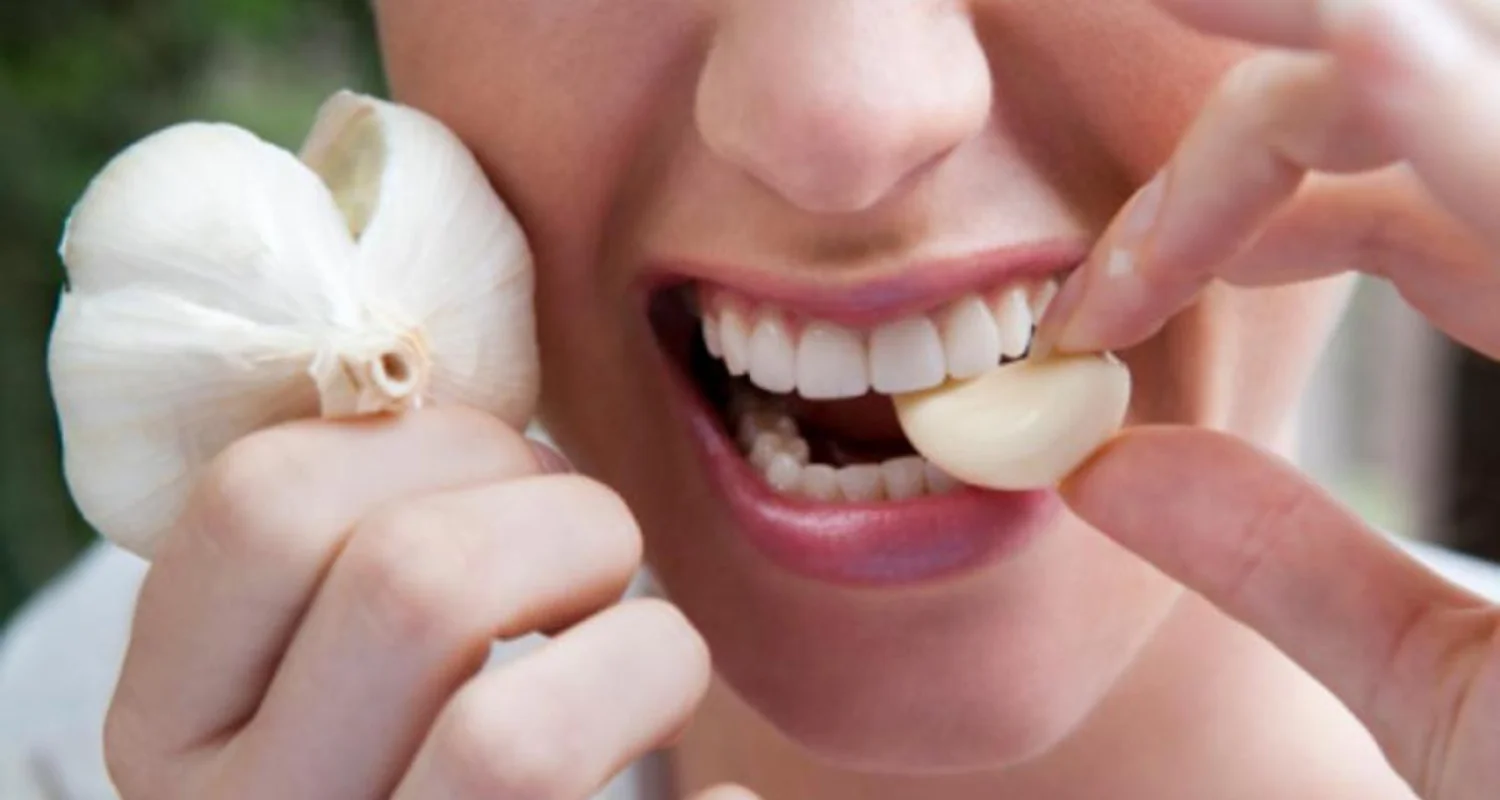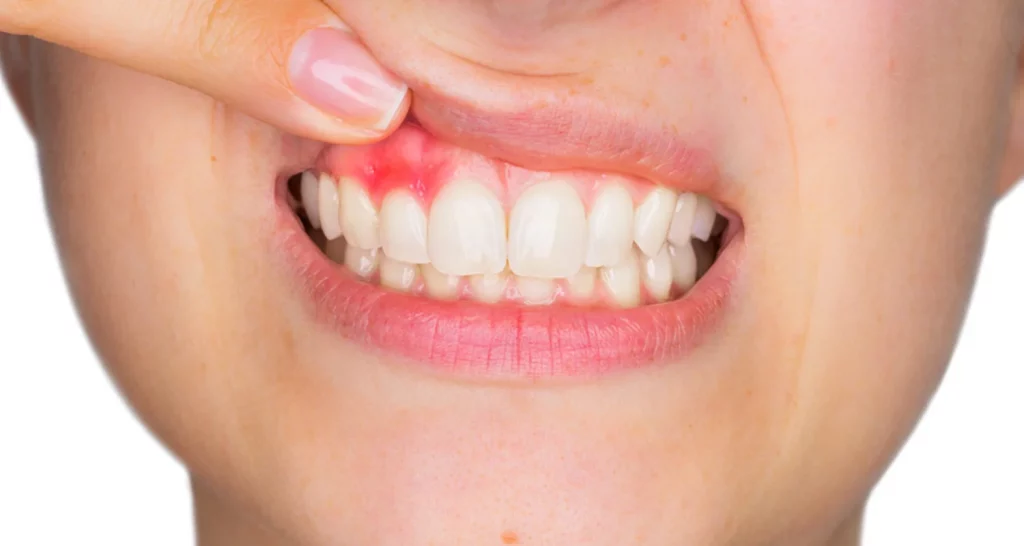Last Updated on: 19th September 2025, 12:38 pm
Amazing Benefits of Garlic for Oral Health With Usage Tips
Garlic, recognized for its culinary intensity and medicinal value in various cultures throughout history, goes far beyond seasoning dishes. This humble bulb is a powerful ally for oral health. Traditional medicine has harnessed its healing properties for centuries, and modern science now supports its effectiveness in promoting a healthy mouth.
In turn, garlic has antibacterial properties, is effective in preventing and treating infections, has high nutritional content, is rich in antioxidants, and helps detoxify heavy metals in the body.
Why is Garlic Beneficial for Oral Health?
Garlic is considered beneficial for oral health thanks to its antibacterial and anti-inflammatory properties. The key compound in garlic is allicin, which is released when fresh garlic is crushed or crushed and is effective against a broad spectrum of oral bacteria. These bacteria are often responsible for dental diseases, such as tooth decay, gum disease, and other oral conditions.
Garlic not only fights bacteria and helps prevent oral infections, but it also helps reduce inflammation, being vital in the treatment of inflammatory gum diseases such as gingivitis or periodontitis. the presence of pathogenic bacteria and inflammation, garlic helps maintain the health of the mouth and gums, preventing the development of more serious diseases.
1. Antibacterial properties
LAllicin is the main component of garlic that gives it antibacterial properties that are effective against a large number of bacteria, including those that affect oral health. Allicin works in several ways to fight bacteria in the mouth:
● Destruction of bacteria: penetrates the cellular barriers of bacteria, altering their vital functions and finally leading to their destruction.
● Prevention of bacterial growth: It not only kills bacteria directly but also inhibits their ability to grow and multiply.
● Anti-biofilm effect: The formation of biofilms by bacteria helps in the development of oral diseases such as gingivitis and periodontitis. Allicin interferes with the ability of bacteria to form these biofilm-like structures.
2. Anti-inflammatory effects
The effects of garlic’s anti-inflammatories on the gums and support for healing are explained through several mechanisms:
● Reduction of inflammatory factors: Garlic contains compounds that can decrease proinflammatory cytokines, molecules that signal and promote the inflammatory response in the gingival tissue.
● Inhibition of proinflammatory enzymes: Inhibition of these enzymes such as cyclooxygenase (COX) and lipoxygenase (LOX) reduces the production of inflammatory mediators such as prostaglandins and leukotrienes, which helps relieve inflammation and promote healing.
● Antioxidant effects: Garlic is rich in antioxidants that neutralize free radicals and protect cells from oxidative damage. This antioxidant action contributes to reducing inflammation and promoting the processes.
Its use as a complement to conventional treatments could offer benefits to patients with periodontal diseases and other oral inflammatory problems.
5 Main Benefits of Garlic for Oral Health
1. Reduces tooth pain
Garlic has been considered not only for its culinary benefits but also for the medicinal benefits it offers, especially its antibiotic properties thanks to the presence of allicin. Allicin is believed to be responsible for garlic’s ability to relieve dental pain. Although we must not forget to consult a dentist to reach an appropriate diagnosis and treatment, in cases of dental pain, garlic is offered as an interesting home remedy to try in times of urgent need.
2. Fights gum disease
Regarding gum diseases, we find that garlic acts in two ways that help us prevent gingivitis and other gum diseases; Firstly, it prevents the proliferation of bacteria that cause the disease and secondly, it reduces inflammation of the gums, promoting better oral health. Its regular inclusion in the diet, or even its direct application in the oral cavity, can be an effective strategy to prevent and treat gingivitis.
3. Prevents tooth decay
Regarding gum diseases, we find that garlic acts in two ways that help us prevent gingivitis and other gum diseases; Firstly, it prevents the proliferation of bacteria that cause the disease and secondly, it reduces inflammation of the gums, promoting better oral health. Its regular inclusion in the diet, or even its direct application in the oral cavity, can be an effective strategy to prevent and treat gingivitis.
4. Whitens teeth
Garlic could be a natural method to help whiten teeth thanks to allicin, since it has antibacterial and antimicrobial properties, helping to fight bacteria and plaque that darken teeth. Suggested methods for using garlic for teeth whitening include rubbing a clove of garlic directly on your teeth. It is important to note that these tips come from anecdotal practices and are not supported by rigorous scientific studies, so caution should be taken to avoid irritation of the gums.
5. Freshens breath
Garlic, used in a fermented form like black garlic, could be a counterintuitive solution to the problem of bad breath, making it an ideal ingredient for oral hygiene products.
How to Use Garlic for Oral Health
It is considered that black garlic is more effective in preserving its active compounds, and it does not retain the bad smell of fresh garlic. To use garlic in dental care in an innovative way and without the drawbacks of its smell, three methods are suggested:
● Black garlic chewing gum: An option to freshen your breath and take advantage of the properties of garlic. It has been deemed useful after meals to maintain oral hygiene.
● Black garlic clove paste: This paste fights bacteria that cause cavities and bad breath, taking advantage of the benefits of black garlic, which is effective and does not have a bad smell.
● Garlic gel: Ideal for relieving dental pain and inflammation, this gel combines garlic with ingredients that improve its flavor and effectiveness, such as menthol and clove or olive oil.
Conclusion
Garlic, with antibacterial and anti-inflammatory capabilities, is well known for supporting oral care: it reduces toothache, helps fight gum disease, and protects against cavities. When you include garlic in your dental regimen, either through diet or an additive to toothpaste – or the use of black garlic gels – you can add a dimension to having a healthy mouth. However, please note that the use of this natural remedy must be approached consistently and patiently; the result may vary between individuals and take longer to appear.
An important note: always be sure to consult with your dentist or other oral health professional before introducing garlic or any other unknown ingredient into your dental care routine, especially if you have pre-existing conditions. If you act early, you can be sure that garlic will work well with your dental care regimen, without potential side effects.
Frequently Asked Questions
Can garlic really improve oral health?
Yes, garlic can improve oral health due to its antibacterial and anti-inflammatory properties. Allicin, a key compound in garlic, effectively fights oral bacteria that can cause dental disease and reduces inflammation in the gums.
How often should I use garlic to get oral health benefits?
There is no specific recommendation on frequency. However, incorporating garlic into your diet regularly or using oral hygiene products containing black garlic could offer ongoing oral health benefits.
Does using garlic in dental care have side effects?
Using garlic directly in the mouth, especially fresh garlic, may cause irritation to the gums or skin of the lips. It is recommended to proceed with caution and consult a dentist if you experience any discomfort.
How long does it take to see results from using garlic for oral health?
The time to see improvements in oral health through the use of garlic varies, depending on the individual and how it is used. As a natural method, it may require regular and consistent use to notice significant results. However, it is not a substitute for professional dental care for specific problems.
Share:
References
1. Pubmed. (Nov; 2021). Garlic (Allium sativum L.) Bioactives and Its Role in Alleviating Oral Pathologies. https://www.ncbi.nlm.nih.gov/pmc/articles/PMC8614839/
2. Pubmed. (Feb; 2020). The preventive and therapeutic application of garlic and other plant ingredients in the treatment of periodontal diseases. https://www.ncbi.nlm.nih.gov/pmc/articles/PMC6966117/
3. Pubmed. (Nov; 2020). Beneficial effect of aged garlic extract on periodontitis: a randomized controlled double-blind clinical study. https://www.ncbi.nlm.nih.gov/pmc/articles/PMC7705088/
4. Pubmed. (Oct; 2014). Efficacy of garlic extract and chlorhexidine mouthwash in reduction of oral salivary microorganisms, an in vitro study. https://www.ncbi.nlm.nih.gov/pmc/articles/PMC4389398/
5. Pubmed.(Apr; 2016). Comparison of Anti-Oxidant and Anti-Inflammatory Effects between Fresh and Aged Black Garlic Extracts. https://www.ncbi.nlm.nih.gov/pmc/articles/PMC6274159/
6. HealthLine. (Feb; 2020). Can Garlic Treat the Pain from Toothaches?. https://www.healthline.com/health/garlic-for-toothache#efficacy
-
Nayibe Cubillos M. [Author]
Pharmaceutical Chemestry |Pharmaceutical Process Management | Pharmaceutical Care | Pharmaceutical Services Audit | Pharmaceutical Services Process Consulting | Content Project Manager | SEO Knowledge | Content Writer | Leadership | Scrum Master
View all posts
A healthcare writer with a solid background in pharmaceutical chemistry and a thorough understanding of Colombian regulatory processes and comprehensive sector management, she has significant experience coordinating and leading multidisciplina...



















